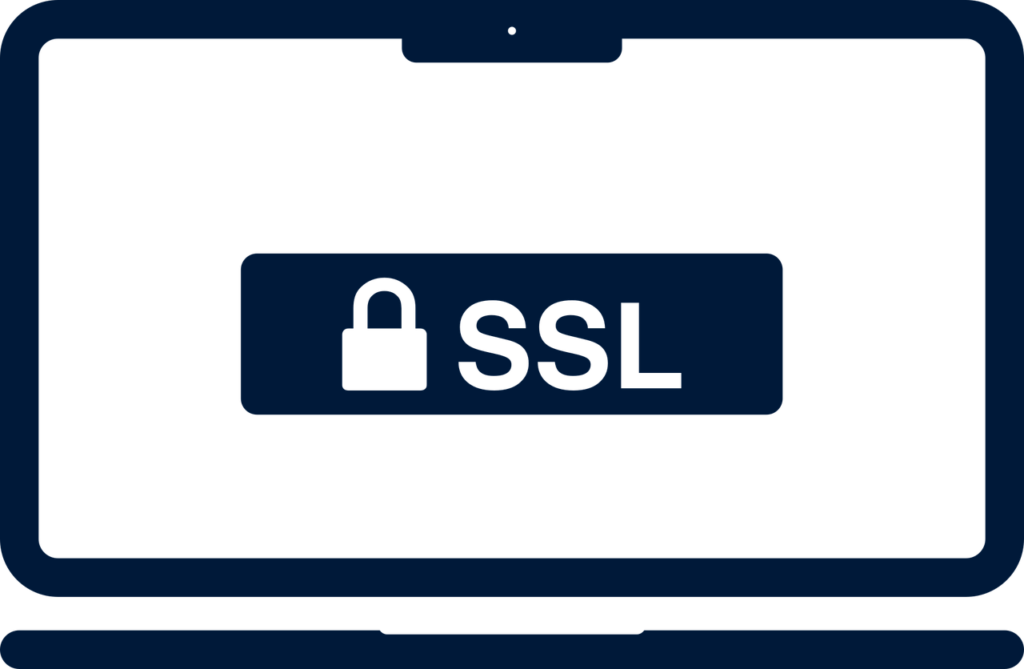The Secure Socket Layer (SSL) protocol encrypts data being transferred between browsers and servers so malicious entities can’t intercept and misuse it. It makes reading the data impossible. Ultimately, SSL certificates create a secure online user experience.
You will receive a warning that the website you’ve opened is insecure with a message or popup, depending on your browser. These warnings scare website visitors away because they feel they might be hacked. If you operate a website without an SSL certificate, you can lose many potential customers due to your browser’s security measures.

You need a certificate to protect any data your website collects from customers, including emails, names, company names, and addresses. A certificate is recommended even if you don’t collect data through your website in order to protect website traffic.
Advantages of SSL certificates
Among the benefits of these certificates are data security, improved search engine ranking, fulfillment of Payment Card Industry (PCI) requirements, enhanced trust, and identity authentication. Here’s a more detailed look.
- Certificates protect sensitive customer information from cybercriminals who can use it to commit fraud or even identity theft.
- Search engines reward sites that have valid and correct SSL certificates by pushing them up in search engine results pages (SERPs).
- The PCI Security Standard Council mandates certain companies to uphold their PCI/DSS requirements. Those companies include banks and credit card companies that accept, hold, and process personal data. You can’t sell items online or work with a payment processor without a certificate.
- Your clients expect your website to be secure. They will lose trust and navigate away if they get a warning that it isn’t because you don’t have a certificate.
- Finally, encryption can improve your brand reputation because it validates and authenticates your business.
Prevent legal problems
Certificates can protect you from legal issues. If your site is hacked and the attacker steals customer data, you will face a lawsuit. Certificates keep customer data from being stolen and help you avoid potentially expensive legal action.
How do I know my certificate is valid?
Most browsers will display the URL starting with HTTP or HTTPS. The latter indicates the presence of a certificate. To check the details, click on the padlock icon in the address bar.
Most frequent SSL errors
There are a few different types of certificate errors that you can come across. Let’s take a look at the most common ones.
Certificate Not Trusted
This message means that the browser doesn’t trust the company that approved or signed the certificate. That means either the server itself issued the certificate or the company that issued it is not on the browser-integrated list of trusted providers. Self-signed certificates are those issued by the server.
Name Mismatch Error
This error indicates that the URL entered in the browser doesn’t match the domain name in the certificate. This is an extremely common error because something as simple as “www” can be behind it. For example, the certificate was registered for www.something.org, and the user entered https://something.org.
Mixed Content Error
The third frequent SSL error occurs when a site with a valid certificate contains a component that’s being loaded from a site without one. Your browser will give you an error popup even if just one file on the other page is unsecured – a JavaScript snippet, an image, a flash animation, etc. – instead of opening the page.
How to fix SSL errors
After diagnosing the problem:
- Have an intermediate certificate installed on your server.
- Create a Certificate Signing Request and get a dedicated IP address.
- Change all URLs to HTTPS and renew your certification.